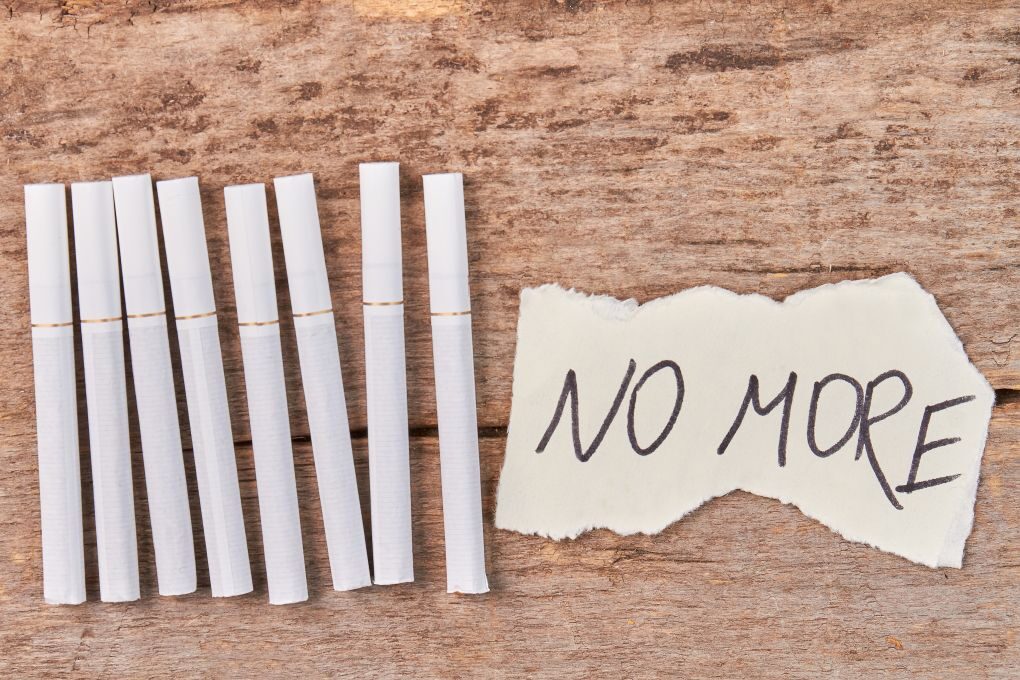At a Glance
Cannabis remains a widely used Class B drug in the UK. Quitting abruptly (“cold turkey”) can trigger physical and psychological symptoms. Hypnotherapy offers a structured, subconscious approach to reduce cravings, address emotional triggers, and support long-term recovery from cannabis addiction.
Getting High May Not Be Worth The Side Effects
Despite ongoing discussions about decriminalising cannabis, it’s classified as a Class B drug in the UK. There are two components of marijuana: THC (causing “high” in users) and CBD (used for therapeutic purposes).
Weed is often seen as one of the most commonly used drugs in the UK, with 6.8% (2.3 million) people aged between 16-59, using it each year. This number is significantly higher among youngsters, with 13.8% of 16-24-year-olds using it in a given year.
Cannabis addiction usually begins as a curiosity and can also be associated with peer pressure. Over time, you may form a habit that slowly morphs from recreational use during parties into a tool you use to relax when stressed with an exam or work. Eventually, you may become addicted to cannabis and feel that you need a joint to unwind every single day. Unlike with other opioids or alcohol, cannabis dependence begins gradually and slowly becomes a habit.
Prolonged use often leads to a feeling of complacency, where you no longer feel motivated or energised to do anything. This can lead to relationship issues and professional setbacks. Addiction to high-potency cannabis strains can lead to psychosis, an inability to concentrate, and reduced coordination.
Are you looking to learn how to stop cannabis cravings? The numerous effects of quitting cannabis can make it challenging. While many people try to quit cold turkey, the strong withdrawal symptoms can sometimes lead to regression. To help prevent it, we recommend trying cannabis addiction hypnotherapy.
I’m Susannah Saunders, and I’ve helped many people with cannabis withdrawal syndrome through rewiring the subconscious mind and empowering them with NLP and coaching. Connect with me today to reduce your dependence on weed.
What Does It Mean To Go Cold Turkey When Quitting Weed?
Most people wondering how to quit cannabis addiction decide to quit cold turkey, which is when you abruptly stop consuming cannabis. When you go cold turkey, you’ll be faced with several quitting cannabis effects, making it challenging to follow through despite your best intentions.
Unlike with other drugs, quitting weed cold turkey often has milder side effects, however, these can still be enough to trigger a relapse. Withdrawal symptoms begin within a day or three of quitting, and they grow in severity and intensity within a week. Many people, especially those who “self-medicate” with cannabis to deal with stress, anxiety, or chronic pain, find the symptoms exacerbating.
Additionally, the effects of quitting cannabis can vary greatly from person to person, making it even more difficult to get help.
Regularly using cannabis adversely changes the way your brain functions, and quitting abruptly may lead to feelings of helplessness. Additionally, the effects of quitting cannabis can vary greatly from person to person, making it even more difficult to get help. If THC is stored in the fat cells, the withdrawal period may last longer.
Common Weed Withdrawal Symptoms
Here are some common side effects a user may experience when deciding to quit weed cold turkey:
- Intense headache or migraines
- Flu-like symptoms, feeling feverish, and body aches
- Depression, irritability, and sudden bouts of anger
- Inability to socialise and experience mood swings
- Feeling stressed or anxious
- Insomnia
- Vivid dreams and night sweats
- Tremors
- Loss of appetite and GI symptoms
- Anorexia
Whether you decide to stop suddenly or gradually reduce the consumption is completely subjective. However, if you find yourself failing to quit weed cold turkey and wondering how to stop cannabis cravings, I recommend trying hypnotherapy.
How Does Hypnotherapy Help You Overcome Cannabis Addiction
Many people thinking about how to quit cannabis addiction consider hypnotherapy.
Addiction is a reinforced behaviour. For instance, when you’re stressed at work, you may feel like regressing. As a result, every minor inconvenience may lead you to seek out marijuana.
Hypnotherapy helps replace the subconscious association and automatic triggers while strengthening your willpower. For instance, you might engage in the consumption of marijuana in group settings or parties to feel accepted. Hypnotherapy can replace this association and make you feel confident and accepted, without having to succumb to the pressure.
The subconscious mind is associated with habits and emotional responses. That’s why many people struggling with quitting cannabis effects can benefit from hypnotherapy by decreasing the intensity of cravings while managing the withdrawal symptoms.
When receiving hypnotherapy for cannabis withdrawal syndrome, a professional therapist will address the emotional triggers behind your addiction. They’ll provide coping strategies to handle stress and chronic pain, while helping you increase your self-awareness and calmness.
Hypnotherapy can act as a complementary approach alongside other CBT and lifestyle changes.
Contact Susannah for Help With Cannabis Addiction
Are you struggling with quitting cannabis effects? Do you feel that quitting weed cold turkey is too difficult? Hypnotherapy is seen as an effective complementary solution to help manage the effects of quitting cannabis. It’ll address the root cause behind your addiction while providing you with healthy coping techniques.
I use a blend of hypnosis, coaching, and NLP to offer you a more holistic solution, which can be personalised depending on your addiction, whether that’s alcohol, smoking, cannabis, or any other classified substance.
In most cases, hypnotherapy can act as a complementary approach to help strengthen your subconscious mind in dealing with the sudden stopping of the substance and managing the triggers and withdrawal symptoms.
Want to know how to quit cannabis addiction? Connect with me today to learn more about my treatments.



 by
by